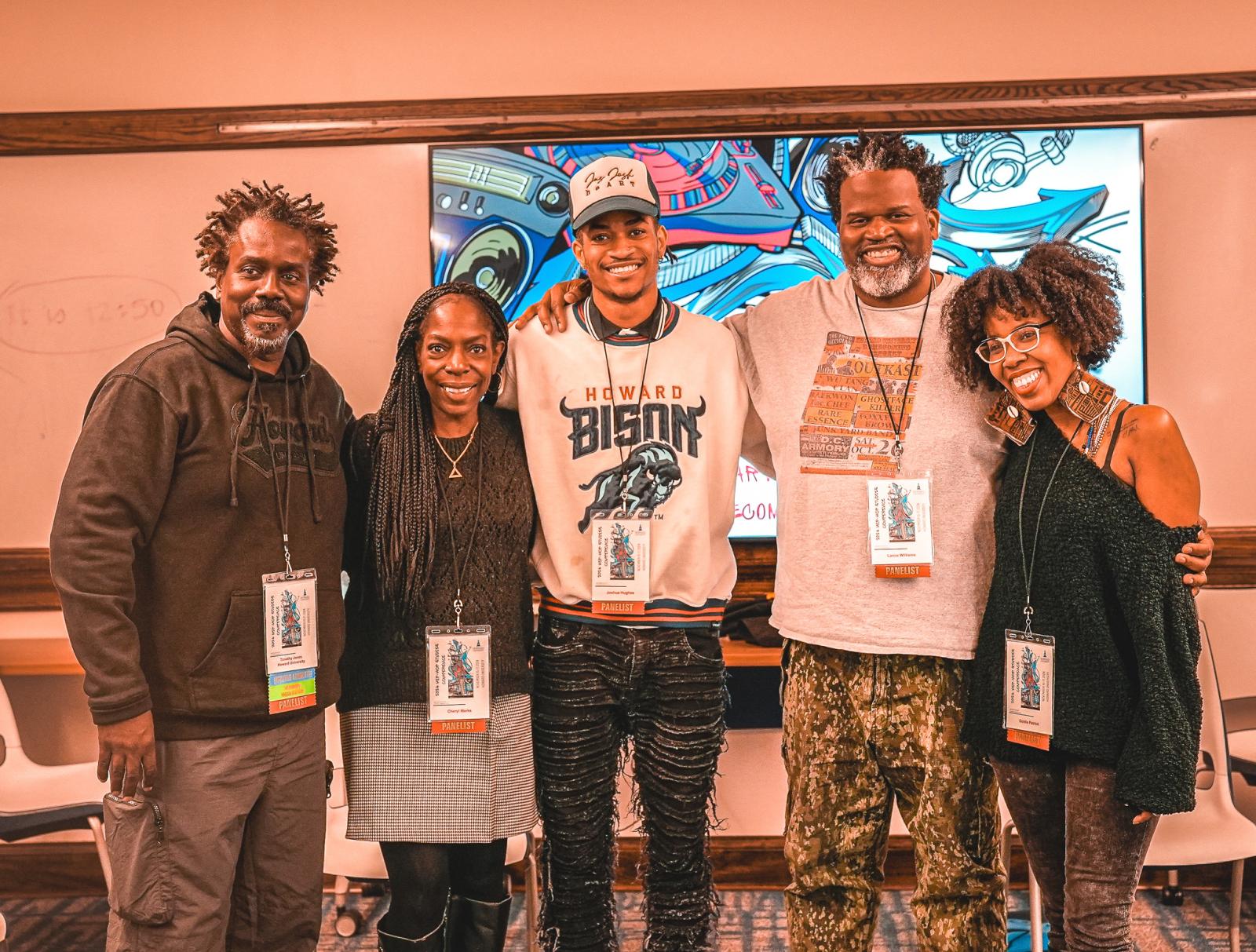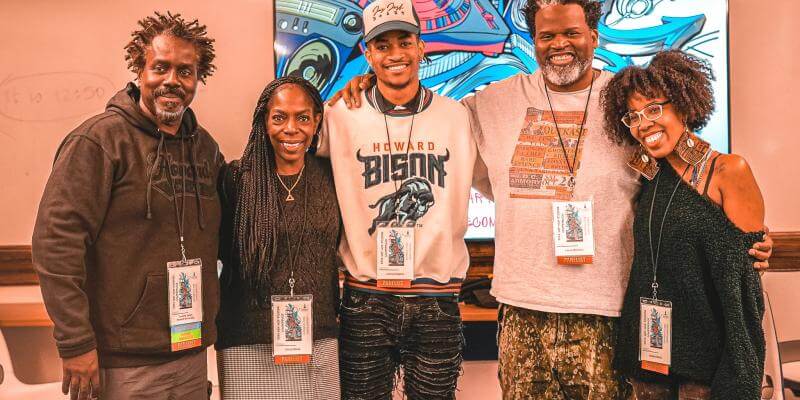
Looking to gain more knowledge from the students of hip-hop currently at Howard, I spoke to student, educator, activist, and artist Joshua Hughes “Jus Josh.” As a panelist for the “ABC 123” panel, Joshua pointed out the importance of connecting modern hip-hop to its 1970s roots. Hughes advocated for teaching students about hip-hop’s history to deepen their appreciation for its cultural significance to the genre’s modern state.
“There’s this theory called ‘broken-window theory’ which says if there’s a nice community with one broken window, then that broken window looks out of place. But if there’s an impoverished community and all the windows are broken then it doesn’t really matter what window is broken,” he said.
Hughes described the “broken-window theory” as a metaphor for understanding the context in which artists create their works in.
“Those windows aren’t necessarily broken intentionally for vandalism purposes, I feel like it’s really like an open window as a means to escape. It’s like we’re trapped in a burning building and we need to get out somehow so we just break the window, but from the outside looking in, you don’t see the fire in the building, you just see a window being broken” Joshua shared. His sentiment aligns with the idea that hip-hop’s expression of rebellion is not merely about chaos but seeking escape and creating something meaningful in response to systemic issues.
In discussing how he envisions the future of hip-hop he states, “I think we need to break more windows, break more doors down, and really just tear the whole building down completely and rebuild our buildings but not be afraid to really delve deep into what the foundation of those buildings look like.”
Manifesting Hip-Hop’s Future
At the conference’s closing ceremony, Howard’s School of Education Adjunct Professor P. Tandhi Hicks Harper, Ph.D., shed light on the origins of hip-hop developmental theory, first researched and developed at Howard University in 1987. Hicks Harper emphasized the importance of intangible qualities like spirit, harmony, and morality in understanding hip-hop, particularly in contrast to Western ideologies that prioritize logic over expression. This powerful reflection solidified the legitimacy and future of the new hip-hop studies minor, further demonstrating Howard’s commitment to elevating hip-hop as a serious field of study.
As I left the conference, I was reminded of Saniya Pearson, the 2024 Prince George’s County Youth Poet Laureate, who invited to share her original poem titled “Moving.” She spoke about her relationship to hip-hop through poetry, as, like many artists, the fire for creative expression is what fuels change and progress.
“As for me and my poetry, I think we have a common message of voicing our opinions, the issues that surround us, and then also our personal experiences,” Pearson said. “When you do something that you love, it shows in your work. It shows through your services to other people.”
At this conference, I learned that authentic expression of self is key to the practice of hip-hop as a genre and as a cultural stance on the Black experience. To be a leader in the hip-hop realm should not be taken lightly. “I feel like I’m a leader, and leaders continuously are, even if not purposely imitated, they are a muse for a lot,” said London. “I hope to just continue to be because I’m honored to be. It’s not braggadocios, or cocky, or arrogant[…] If I can’t teach you anything I don’t think my contribution to society is validated. Our purpose as people is to educate and be educated.”
This post was originally published on this site be sure to check out more of their content.







